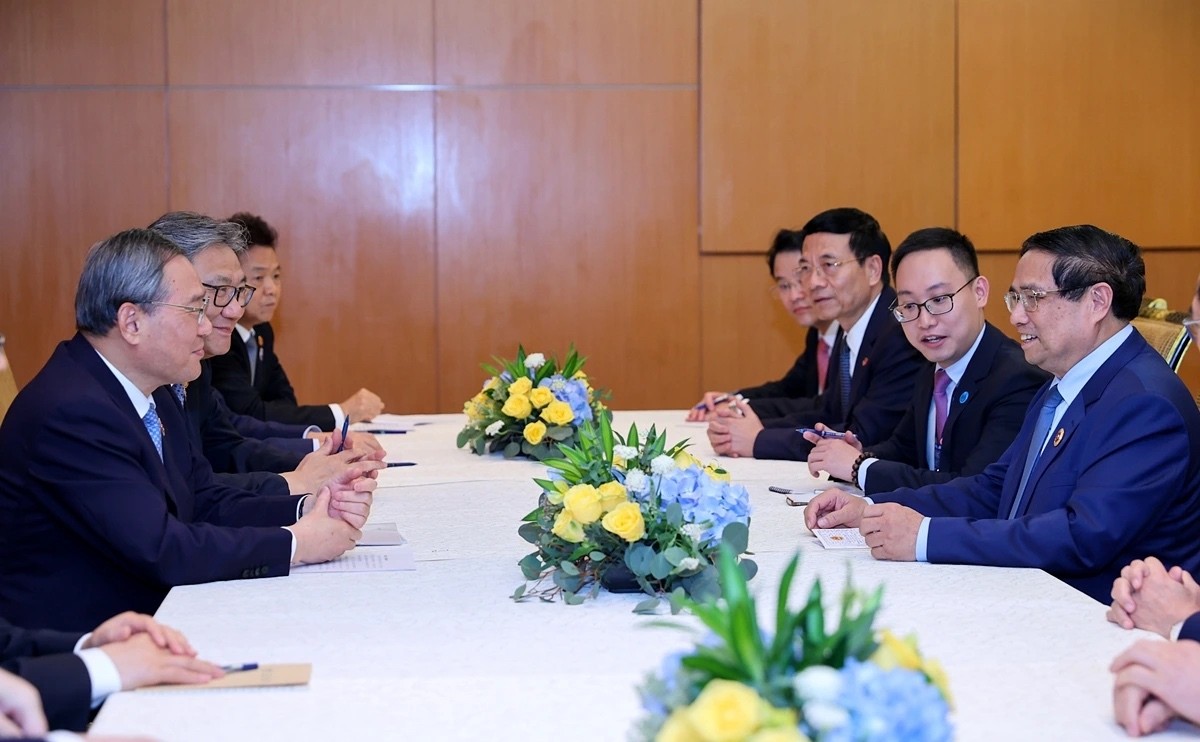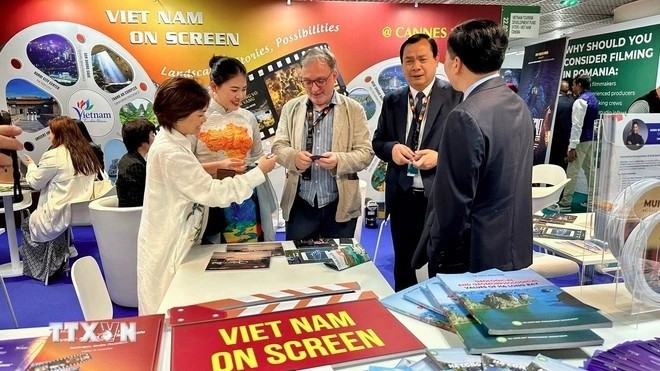Vietnam News Today (Nov. 8): PM Pham Minh Chinh Attends 8th Greater Mekong Subregion Summit in China
| Vietnam News Today (Nov. 6): PM Arrives in Kunming, Beginning Activities in China | |
| Vietnam News Today (Nov. 7): Prime Ministers of Vietnam, Laos Meet in Kunming |
| Vietnam News Today (Nov. 8) notable headlines PM Pham Minh Chinh attends 8th Greater Mekong Subregion Summit in China Party leader receives outgoing Cuban ambassador Vietnam proposes enhancing ACMECS cooperation to drive breakthrough development Vietnam, RoK cooperate to combat counterfeits, protect consumers Vietnam’s overseas investment up 11.5% in 10 months Vietnam ready to share development experience with Cuba Vietnamese and Chinese Prime Ministers hold talks in Kunming WTO membership bears fruit for Vietnam after 18 years of admission Vietnam-China trade hits nearly US$170 billion over 10-month period |
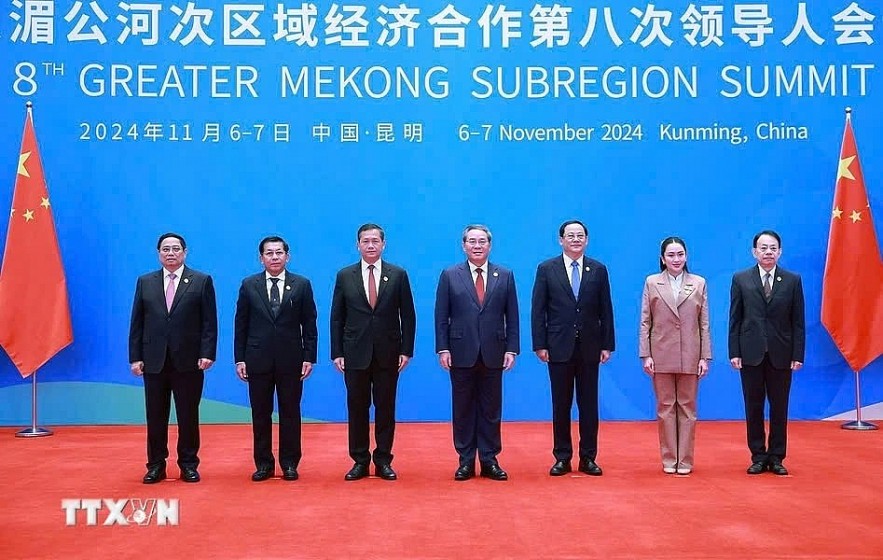 |
| Vietnamese Prime Minister Pham Minh Chinh (first from left) and leaders of Cambodia, Laos, Myanmar, Thailand and China, as well as the Asian Development Bank leadership at the opening ceremony of the 8th Greater Mekong Subregion (GMS) Summit in Kunming, China, on November 7. (Photo: VNA) |
PM Pham Minh Chinh attends 8th Greater Mekong Subregion Summit in China
Vietnamese Prime Minister Pham Minh Chinh joined leaders of Cambodia, Laos, Myanmar, Thailand and China, as well as the Asian Development Bank leadership to attend the opening ceremony of the 8th Greater Mekong Subregion (GMS) Summit in Kunming, China, on November 7 morning.
The summit, themed “Towards a Better Community through Innovation-driven Development,” is expected to discuss past cooperation, challenges and future directions for stronger economic cooperation and regional integration.
The Greater Mekong Subregion (GMS) Summit is an important conference aimed at strengthening economic cooperation and sustainable development in the region. Supported by the Asian Development Bank, the GMS mechanism initiated in 1992 brings together six countries, namely Cambodia, Laos, Myanmar, Thailand, Vietnam, and China (specifically the Yunnan and Guangxi provinces), cited VOV.
The objective of GMS is to promote economic growth, reduce poverty, and create development opportunities through cross-country cooperation in critical areas such as infrastructure, energy, trade, climate change response, and water resource management.
Vietnam joined the GMS initiative in 1992 as one of the founding members. It has since played a significant role in shaping the cooperation framework, which aims to enhance economic development, regional connectivity, and environmental sustainability across the Mekong region.
Party leader receives outgoing Cuban ambassador
Party General Secretary To Lam held a reception for outgoing Cuban Ambassador Orlando Nicolas Hernandez Guillen in Hanoi on November 7.
The Party leader commended his guest’s significant contributions during his term, particularly the efforts to support the transfer of the Abdala vaccine and send Cuban medical experts to Vietnam in the most challenging times of the COVID-19 pandemic.
Lam reiterated Vietnam’s steadfast commitment to doing everything within its capabilities to further expand and deepen the two countries’ traditional solidarity, special friendship, and comprehensive cooperation for the sake of their people, socialism building, as well as global peace, stability, and development, according to VNA.
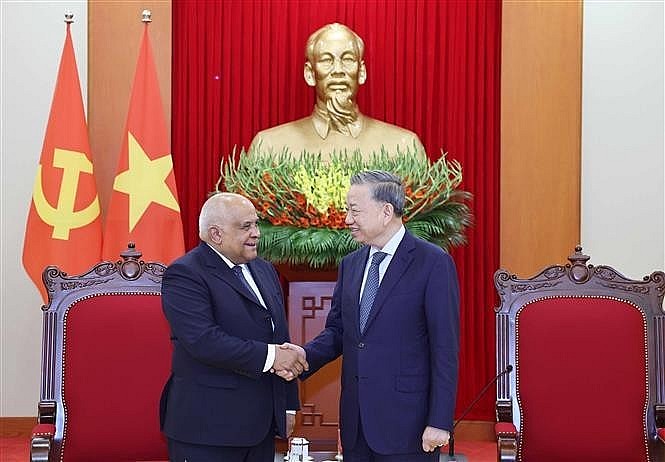 |
| Party General Secretary To Lam (R) and outgoing Cuban Ambassador Orlando Nicolas Hernandez Guillen at their meeting in Hanoi on November 7. (Photo: VNA) |
Reflecting on the substantial achievements of his recent state visit to Cuba, the Party chief highlighted the high-level consensus between the leaders of both Parties and States on cooperation orientations and priority areas such as agriculture, energy, trade, and biotechnology. He expressed his satisfaction with the ongoing progress in collaborative ties between the sides’ ministries and sectors to promptly and effectively implement their priority projects.
Agreeing with his host, the Cuban diplomat emphasized the historic significance of his host's recent visit to Cuba and stated that his country places importance on its trusted relationship with Vietnam.
Cuba is determined to work with Vietnam and grow together, actively carry out high-level bilateral agreements, and organize diverse cooperative activities celebrating the Vietnam - Cuba Friendship Year 2025, he added.
On this occasion, the Party General Secretary of Vietnam extended his regards to Cuban leaders through the ambassador and repeated his invitation to First Secretary of the Communist Party of Cuba Central Committee and President of Cuba Miguel Diaz-Canel Bermudez and Cuban revolutionary leader General Raul Castro Ruz to visit Vietnam next year to commemorate significant milestones in the nations’ relationship.
The same day, Nguyen Xuan Thang, Politburo member, Director of the Ho Chi Minh National Academy of Politics and Chairman of the Central Theoretical Council, also had a meeting with the Cuban Ambassador.
Vietnam proposes enhancing ACMECS cooperation to drive breakthrough development
Vietnamese Prime Minister Pham Minh Chinh proposed six key areas for enhanced cooperation within the Ayeyawady-Chao Phraya-Mekong Economic Cooperation Strategy (ACMECS) framework to drive regional breakthrough development, at the 10th ACMECS Summit in Kunming, China, on November 7.
Addressing the meeting that also saw the presence of leaders of four other ACMECS member countries – Cambodia, Laos, Myanmar and Thailand, Chinh emphasized ACMECS’ central role in Mekong subregional cooperation, describing it as an indispensable part of the ASEAN Community, a gateway connecting ASEAN with Northeast Asia and Southeast Asia, and a bridge between the Pacific and Indian Oceans.
Over more than 20 years of formation and development, he said ACMECS cooperation has achieved significant milestones, contributing to socio-economic development in each member country and advancing the ASEAN Community Vision.
Vietnam will continue to actively, proactively, and creatively engage in the development process of ACMECS, striving to build a strong ACMECS for a united ASEAN which is diverse in unity, and balanced in development, he affirmed.
The Vietnamese leader emphasized that the world is currently entering an era of innovation, opening up new opportunities that are crucial for the development of each country and the entire subregion. It is now time for ACMECS to define a new mission that is to build a united, strong, and sustainable Mekong community. Accordingly, future ACMECS cooperation must embody the spirit of five elements, namely shared aspirations, shared vision, shared determination, common voice, and common actions.
To this end, he proposed key areas for ACMECS to breakthrough in the next phase, including new thinking on coordinated actions; tradition-modernisation combination; rapid growth and sustainability; national-regional-international connectivity; government-people-business link; and balancing development with stability and security.
According to the PM, cooperation plans and programs should be substantial, focused, and targeted, avoiding dispersion. They must closely align with the development needs of member countries and be highly feasible, with the potential to mobilize resources effectively. He also announced that Vietnam would contribute US$10 million to the ACMECS Development Fund.
He stressed the need to ensure balanced and harmonious development between traditional economic sectors and modern technologies.
On the one hand, ACMECS should help member countries refresh traditional growth drivers and boost investment, consumption, and trade and on the other hand, it should promote new growth drivers to enable member countries to seize new opportunities and integrate more deeply into regional and global value chains, he said.
Addressing the meeting that also saw the presence of leaders of four other ACMECS member countries – Cambodia, Laos, Myanmar and Thailand, Chinh emphasized ACMECS’ central role in Mekong subregional cooperation, describing it as an indispensable part of the ASEAN Community, a gateway connecting ASEAN with Northeast Asia and Southeast Asia, and a bridge between the Pacific and Indian Oceans.
Over more than 20 years of formation and development, he said ACMECS cooperation has achieved significant milestones, contributing to socio-economic development in each member country and advancing the ASEAN Community Vision.
Vietnam will continue to actively, proactively, and creatively engage in the development process of ACMECS, striving to build a strong ACMECS for a united ASEAN which is diverse in unity, and balanced in development, he affirmed.
The Vietnamese leader emphasized that the world is currently entering an era of innovation, opening up new opportunities that are crucial for the development of each country and the entire subregion. It is now time for ACMECS to define a new mission that is to build a united, strong, and sustainable Mekong community. Accordingly, future ACMECS cooperation must embody the spirit of five elements, namely shared aspirations, shared vision, shared determination, common voice, and common actions.
To this end, he proposed key areas for ACMECS to breakthrough in the next phase, including new thinking on coordinated actions; tradition-modernisation combination; rapid growth and sustainability; national-regional-international connectivity; government-people-business link; and balancing development with stability and security.
According to the PM, cooperation plans and programs should be substantial, focused, and targeted, avoiding dispersion. They must closely align with the development needs of member countries and be highly feasible, with the potential to mobilize resources effectively. He also announced that Vietnam would contribute US$10 million to the ACMECS Development Fund.
He stressed the need to ensure balanced and harmonious development between traditional economic sectors and modern technologies.
On the one hand, ACMECS should help member countries refresh traditional growth drivers and boost investment, consumption, and trade and on the other hand, it should promote new growth drivers to enable member countries to seize new opportunities and integrate more deeply into regional and global value chains, he said.
To do this, he said digital transformation should be prioritized, with a focus on investment in digital infrastructure and services, supporting startups and innovation, and applying digital technology in industries like manufacturing, information and communication technology, finance, banking, and digital customs, VOV reported.
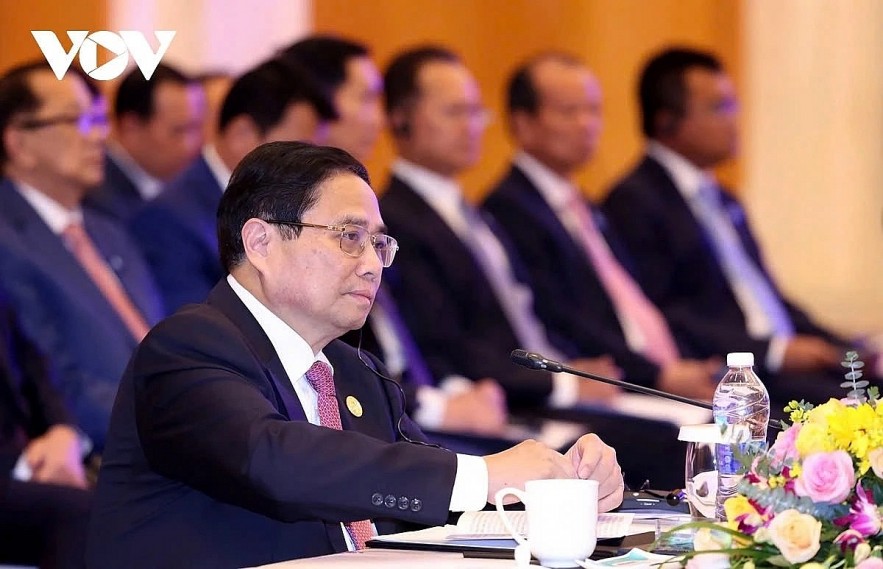 |
| Pham Minh Chinh speaks at the 10th Ayeyawady-Chao Phraya-Mekong Economic Cooperation Strategy (ACMECS) Summit in Kunming, China, on November 7. |
It’s also important to step up rapid growth linked to sustainability, focusing on green transition, circular economy, and sharing economy. In response to the urgent need to tackle climate change and promote sustainable development in the subregion, ACMECS’s top priority is attracting green financing for green industries, clean agriculture, and low-emission transportation and logistics.
Additionally, Chinh emphasized the need to enhance cooperation among the five countries in managing and sustainably using the Mekong River’s water resources. He proposed sharing ideas on boosting cooperation between ACMECS and development partners to transfer technology and improve capacity in managing and sustainably using transboundary water resources, especially in the real-time sharing of hydrological data.
He urged ACMECS members to foster solidarity and political trust, enhance information sharing and consultations on plans and projects related to the Mekong River’s water resources, and strengthen cooperation in disaster management through capacity-building projects, establishing early warning systems among Mekong countries, and developing infrastructure that is resilient to natural disasters.
The PM stressed the importance of national, regional and international connectivity to facilitate the flow of goods, services, and people across the five ACMECS countries, by developing transportation infrastructure to connect intra- and inter-regional areas, particularly through railways and expressways. He suggested that the five countries work together to share information and coordinate the development of economic policies and plans to enhance mutual complementarity and spread benefits. He also encouraged persuading development partners to jointly invest with ACMECS to ensure seamless connectivity for a Mekong subregional integration.
He placed a special emphasis on the linkages between the government, people and businesses, and proposed that all ACMECS strategies, action plans, and projects should place the people and businesses at the center, as the main subject, target, and driving force, in the spirit of leaving no one behind. He also proposed strengthening cooperation within ACMECS to combat transnational crime, particularly drug trafficking and cybercrime, ensuring that no country allows its territory to be used to harm others.
The recommendations and proposals by the Vietnamese Prime Minister were appreciated by participating delegates, and reflected in the summit’s documents.
At the conclusion of the summit, the leaders adopted the Vientiane Declaration and witnessed the handover of the ACMECS chairmanship from Laos to Myanmar.
The Ayeyawady-Chao Phraya-Mekong Economic Cooperation Strategy (ACMECS) is a framework for cooperation between five countries in the Mekong River basin, namely Cambodia, Laos, Myanmar, Thailand, and Vietnam. The main objective of ACMECS is to promote economic cooperation both collectively and bilaterally among member countries, thereby exploiting and leveraging the comparative advantages of each country and their respective regions.
This cooperation helps enhance the competitiveness of the countries in the region, while narrowing the development gap between the member states, creating a foundation for a unified, sustainable, and prosperous Mekong subregion. ACMECS also contributes to the implementation of regional cooperation initiatives and supports member countries in achieving their national and regional development goals.
The 2024 summit is themed “Towards Seamless Connectivity for Mekong Subregional Integration.”
Vietnam, RoK cooperate to combat counterfeits, protect consumers
The Vietnam Directorate of Market Surveillance (DMS) has collaborated with the Korean Intellectual Property Office (KIPO) and Korean Intellectual Property Protection Agency (KOIPA) to host a workshop discussing counterfeits of those from the Republic of Korea’s brands in Vietnam.
At the event held in Hanoi on November 7, representatives from ten Korean companies, namely Everpia, Samsung, aT, Amore, Cuckoo, CJ, Dorco, Lines, Hyundai, and Iconix, shared insights on brand violations in various markets, including Vietnam. They provided specific indicators and methods to distinguish genuine from counterfeit products for each brand, assisting authorities in identifying and intercepting these unauthorized replicas.
KIPO Director Jeong In-sik said that counterfeit goods not only undermine business operations but also endanger Vietnamese consumer health and safety. He noted that this issue extends beyond national borders, affecting the entire global supply chain, cited VNA.
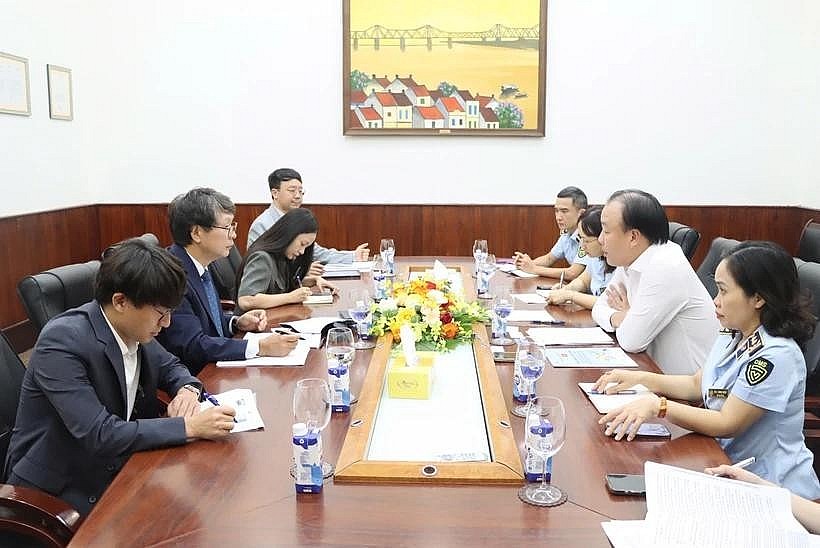 |
| Officials of the Vietnam Directorate of Market Surveillance and the RoK side discuss measures for fighting counterfeits and intellectual property infringement. (Photo: VNA) |
DMS Director General Tran Huu Linh acknowledged the robust economic and trade relations between Vietnam and the RoK and noted that Korean products have never been as popular in Vietnam as they are today.
Praising the RoK’s initiative in organizing this workshop to enhance the knowledge of functional agencies in differentiating genuine from counterfeit goods, he affirmed the DMS is committed to collaborating with other Vietnamese agencies and Korean businesses to detect and prevent counterfeit-related issues.
Earlier, on November 6, Linh held discussions with a delegation from KIPO and KOIPA to discuss the prevalence of counterfeit RoK products in Vietnam and measures to tackle it.
Vietnam’s overseas investment up 11.5% in 10 months
Vietnam’s outbound investment hit US$473.1 million in the first ten months of 2024, a year-on-year increase of 11.5 percent.
Over US$429.9 million was registered for 124 newly-licensed projects, up 71.2 percent against the same period last year, while US$43.2 million was added to 21 existing projects, down 75.1 percent.
In October alone, overseas investments totalled US$283.5 million, in which investments in science and technology took the lead with US$200.5 million, making up 42.4 percent of the total investment, VGP reported.
The manufacturing and processing industry ranked second with US$70.8 million, accounting for 15 percent; followed by mining with US$58.6 million; wholesale and retail, repair of automobiles, motorcycles, and other motor vehicles with US$36.2 million; and transportation and warehousing with US$33.2 million.
In the January-October period, Vietnamese investors poured investment capital in 30 countries and territories, with Indonesia topping the list with US$127.7 million, India US$90.1 million, Laos US$77.9 million, the Netherlands US$54.6 million, and the U.S. US$42.8 million.
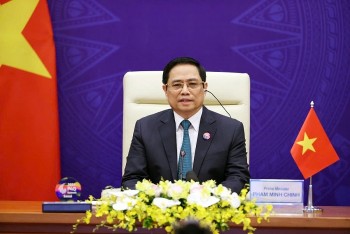 | Vietnam News Today (Nov. 4): PM Pham Minh Chinh to Attend Greater Mekong Subregion Summit in China Vietnam News Today (Nov. 4): PM Pham Minh Chinh to attend Greater Mekong Subregion Summit in China; Cuban top legislator concludes Vietnam visit; Festival honors ... |
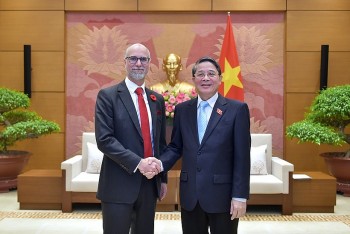 | Vietnam News Today (Nov. 5): Vietnam Seeks Stronger Legislative Ties with Canada Vietnam News Today (Nov. 5): Vietnam seeks stronger legislative ties with Canada; Vietnam and Japan further enhance defense cooperation; Vietnam among top three ASEAN countries ... |
Recommended
 National
National
Vietnam News Today (May 29): Vietnam and Hungary to Expand Cooperation into New Areas
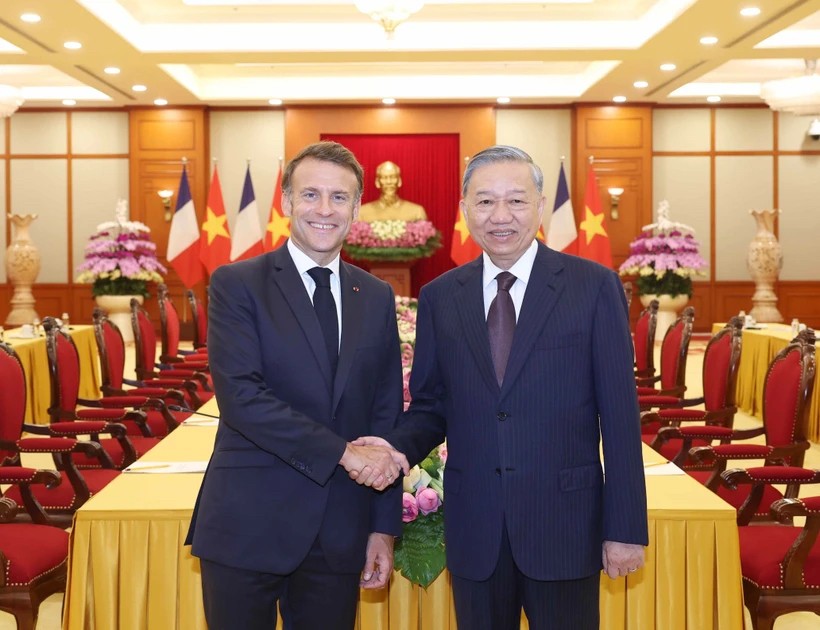 National
National
Vietnam News Today (May 27): Vietnam Treasures Multifaceted Collaboration with France
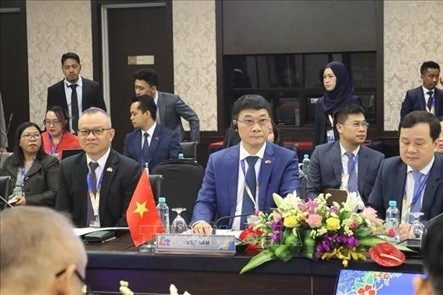 National
National
Vietnam Commits to Building an Inclusive, Sustainable and Cohesive ASEAN
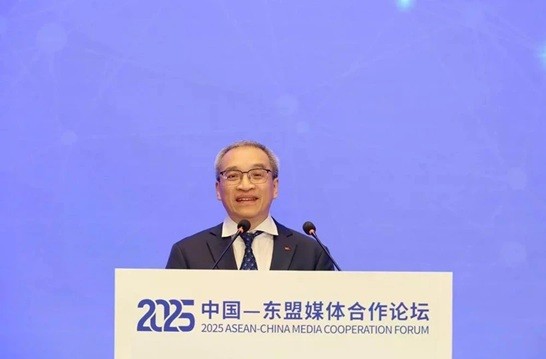 National
National
Vietnam Proposes Vision for Responsible Digital Journalism Cooperation
 National
National
Vietnam News Today (May 31): Vietnam Strongly Supports Laos’s National Development
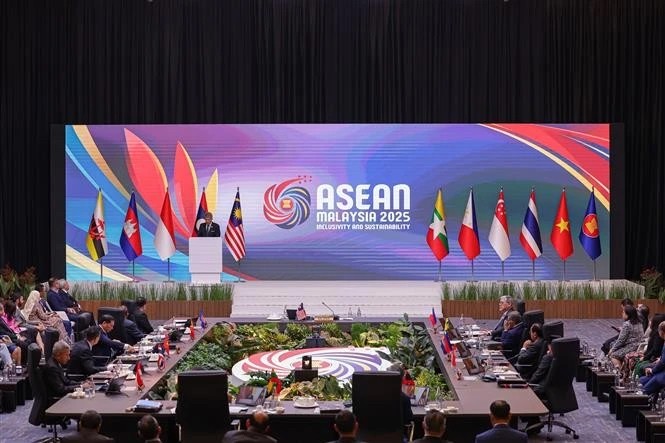 National
National
Vietnam News Today (May 26): Vietnam Attends ASEAN Meetings for Promoting Regional Cooperation
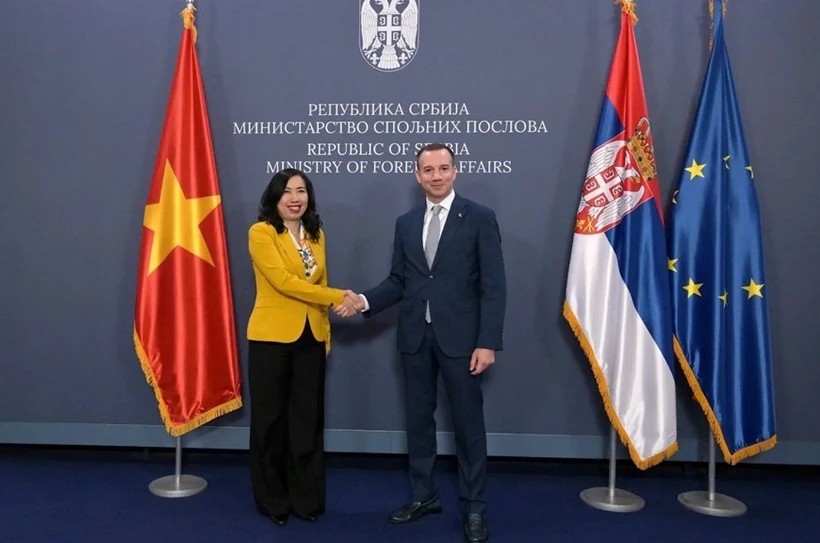 National
National
Vietnam News Today (May 25): Vietnam, Serbia Hold Political Consultation
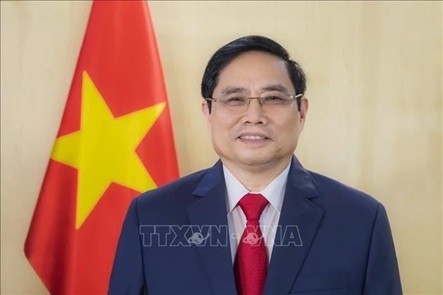 National
National

